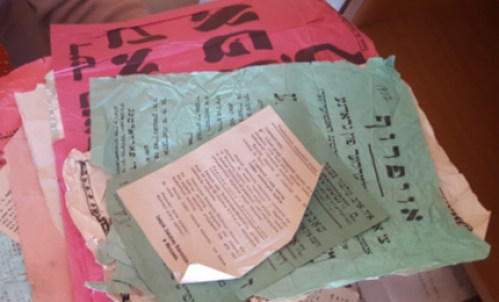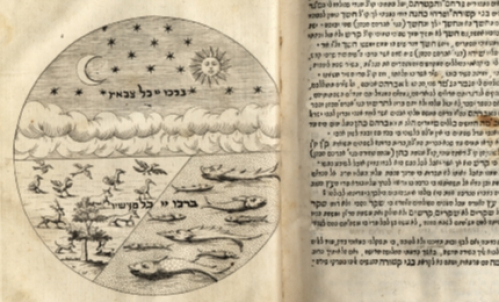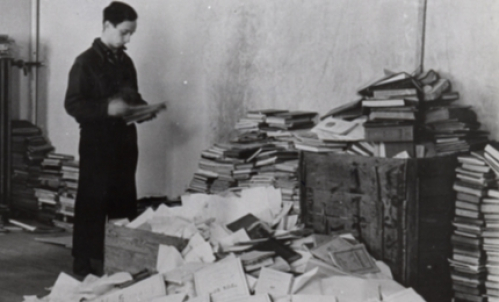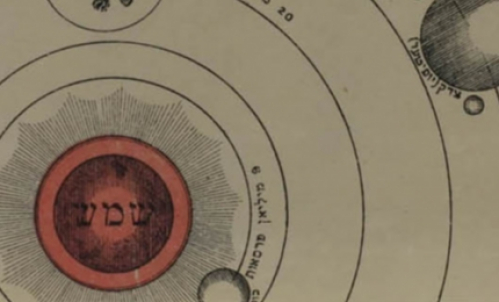Bringing History to Life
Archivists & Digital Experts Strive to Preserve a Precious Heritage
The Edward Blank YIVO Vilna Online Collections project is a major seven-year initiative launched in 2015 to preserve, digitize, and virtually reunite YIVO's pre-war library and archives with materials located in institutions in Vilnius, Lithuania after World War II. This ambitious project is dedicated to conserving and digitizing a myriad of rare books and original artifacts, making them available for viewing on YIVO's website, free of charge. A boon to scholars, researchers, and the general public, these expansive holdings reflect wide-ranging aspects of Eastern European and Russian Jewish civilization. Among collection highlights are autobiographies of Jewish youth in Eastern Europe during the 1930s and the papers of Elias Tcherikower, a founder of YIVO and historian who described pogroms in Ukraine and the antisemitic impact of the Protocols of the Elders of Zion. The collection is unduplicated in its breadth and scope and will serve to educate future generations about a nearly lost Ashkenazi history and culture.
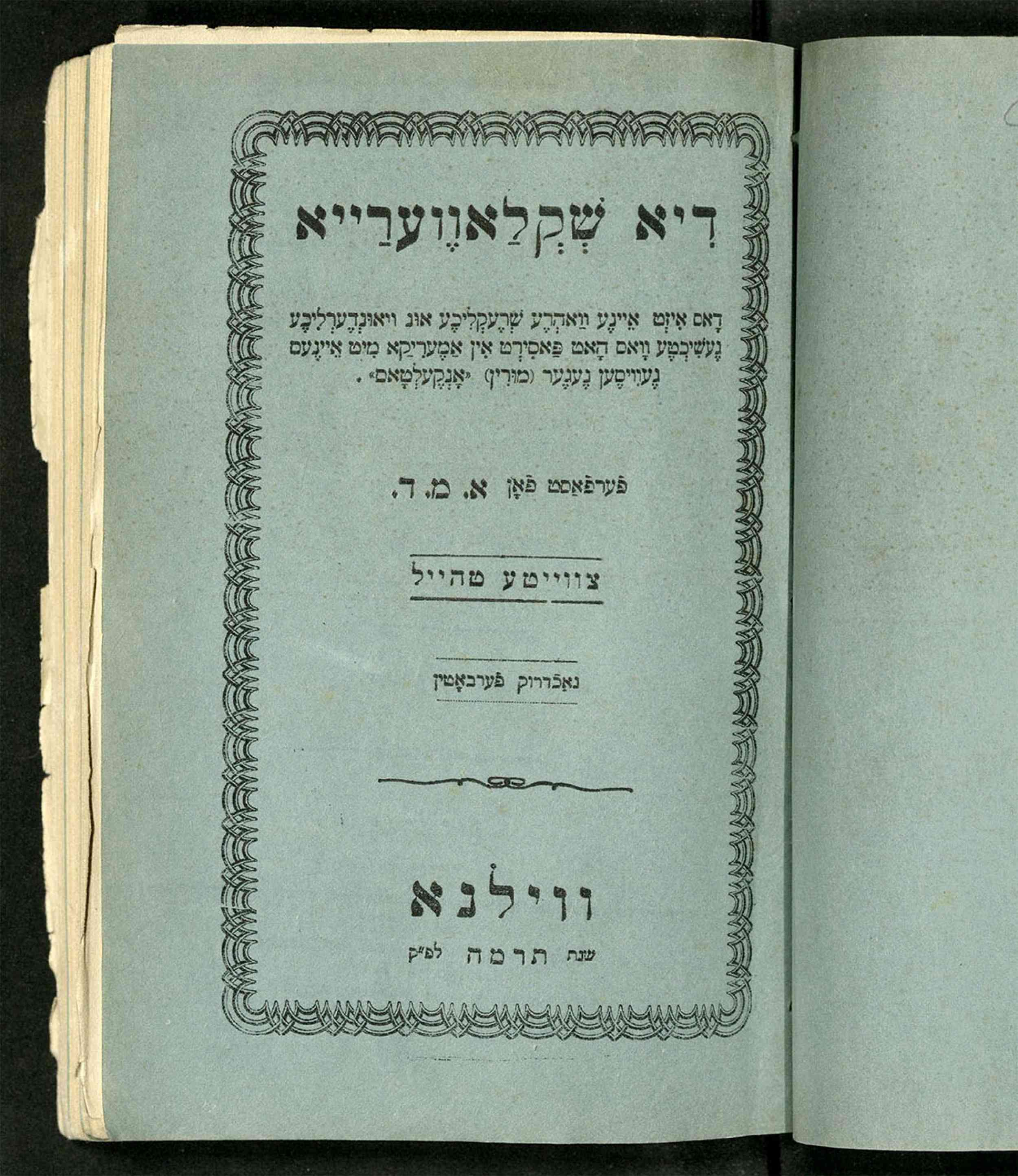
At the heart of these efforts is a close-knit YIVO team working together intensively to catalog, photograph, scan, and share materials of public and scholarly importance. Despite this year's pandemic, work on the Vilna project has continued. To date YIVO has digitized 100% of the library collections and 56% of the archival collections in New York. Visitors to vilnacollections.yivo.org/Collections-Online can find prewar geometry textbooks, illustrated children's books such as Bebl Bebl Bob, and records from the Yiddish Actors Union in Poland—just to start. Documents span numerous languages, leading with Yiddish, Russian, Lithuanian, Ukrainian, Polish, Hebrew, and English.
Stefanie Halpern, Director of the YIVO Archives, discussed the intricacies of preserving documents on such a large scale and the skill required to participate in this multi-step process: “It’s no easy feat to make sure that the process each of the documents goes through—from conservation and preservation, to processing, to digitizing and placing the materials online—happens in a coordinated and systematic way. We’ve established timelines and workflows and tracking systems to make sure that we know exactly where each document is going and when. But the most important part of the project, and the reason we’ve been able to accomplish so much even during the pandemic is the brilliant, hard-working, and dedicated Vilna team we have in place.”
The simple act of touching a page can cause it to crumble...
Tatiana Popova, Head of the Preservation Lab, is deeply involved in YIVO's time-sensitive “rescue” mission. She interacts often with archivists and the digital lab on the same floor and values their input. “We work closely across all departments in order to succeed,” she explains. “Preservation is basically a race against time to keep old documents from disintegrating before they can be digitized and ingested.”
Tatiana came to the U.S. from Russia and has spent 22 years working with YIVO materials. She is adept at treating mold, acid damage, and other forms of deterioration, assessing which papers can be saved through painstaking repair. Among her challenges is dealing with oversized documents that have eroded. Tatiana says: “I feel like a doctor, and every patient is different to diagnose and treat. The simple act of touching a page can cause it to crumble, which is upsetting because the page reflects people's lives and ideas. Whether we encapsulate pages in mylar or use another method, we have to protect materials so we can stabilize them and achieve scannable copies.”
“The Vilna treasures bring history to life,” adds Tatiana. “Sometimes, I discover handmade artifacts in boxes or an interesting book in Russian, and it brings me back to another world.”
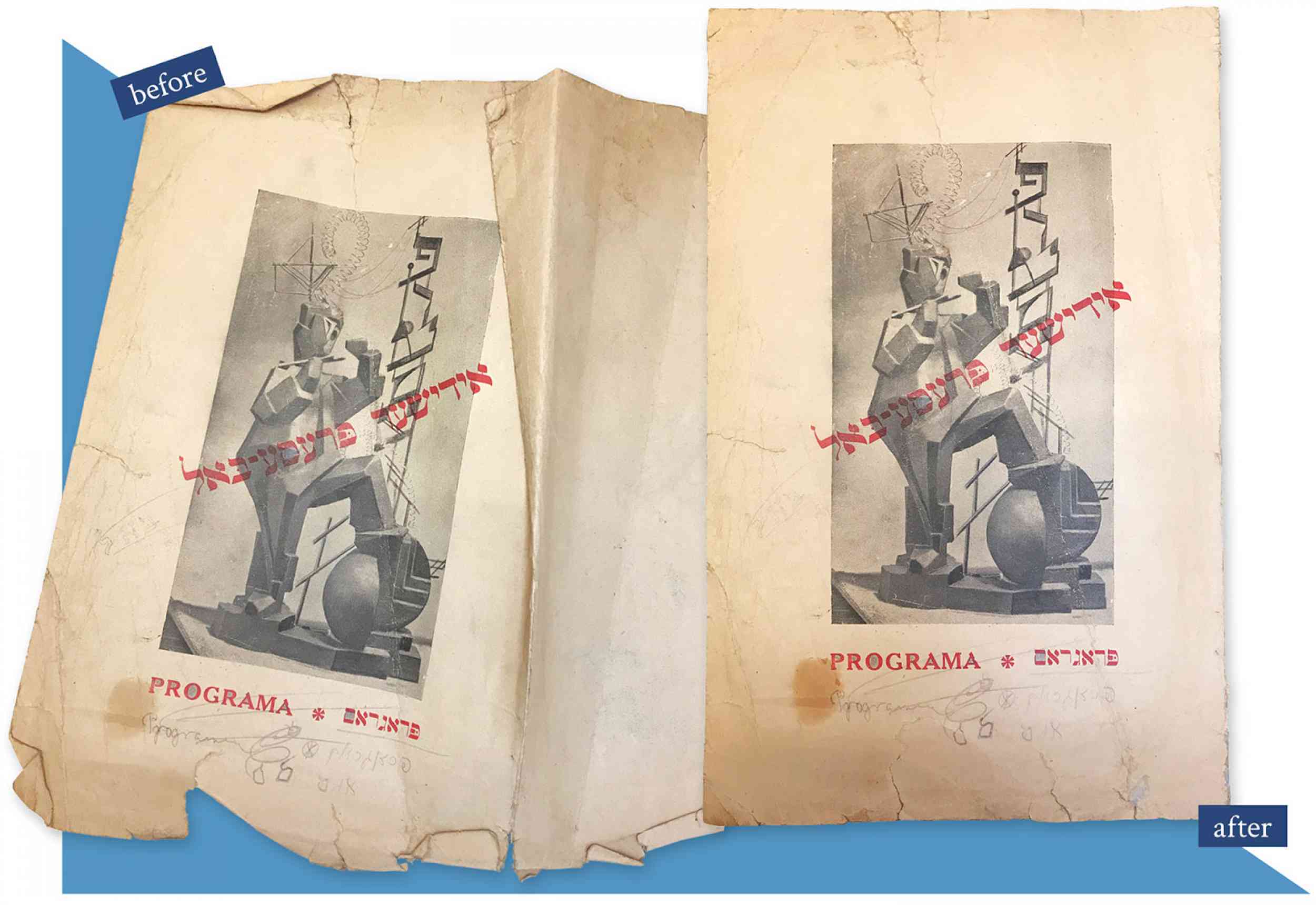
The Vilna Collections show us how interconnected the Jewish community was to the broader community...
Allison Richards, a Conservator, has a background in art and Jewish Studies. She enjoys caring for the many colorful Yiddish theater posters representing productions from all over the world, from Poland to Argentina, Chile, and the U.S. Allison has conserved posters advertising public lectures by Bundist labor leaders and restored age-impacted photographs taken during the 1920s and 30s. All require technical delicacy. Together, they represent an expansive range of human endeavor within Jewish communities across the continents.
“The Vilna Collections show us how interconnected the Jewish community was to the broader community, and the desire of Jewish people to be citizens of the world, participating in global cultural, literary, artistic, and scientific circles.” Allison hopes the Vilna Collections will help to expand current, more narrowly defined perspectives on Jewish Studies.
Yakov Sklar, Head of Archival Processing for the Vilna project, is a native speaker of Russian and Ukrainian. “We have a great team and work very well together, sharing our language and technical abilities,” says Yakov. “We process original texts received from institutions in Vilnius, Lithuania, and documents that have been in YIVO's possession for 70 years or more. Documents are processed in a logical, systematic manner to develop an efficient finding aid for readers. We start with creating general descriptions, followed by more granular details. Materials need to be cataloged before they reach the digitization labs.” During 2020, Yakov reviewed and cataloged the personal and professional papers of Elias Tcherikower, taking great pleasure in this scholarly task.
“Archival collections are, by their nature, unique. As an archivist, I care about the collection as a whole, with its broad appeal,” Yakov commented. “I enjoy discovering a letter from a famous Russian terrorist before the Revolution or written by Vladimir Nabokov's father, but to me, the overarching value of the Vilna Collection is its coverage of every aspect of Jewish life during the Russian empire and the interwar period.”
Devora Geller, Digital Preservation Manager, shepherds archival activities from digitization through ingest, when literature and artifacts are posted online for the benefit of readers and researchers. Each workday brings intriguing new archival discoveries. “I have the best job because I get to see everyone's special finds, which might be written in German, Yiddish, Russian, Polish, French, Spanish or even Chinese,” she states.
One of Devora's key roles is to achieve quality assurance for fragile, deteriorating artifacts, often constructed of poor paper stock and stored haphazardly. Entire caches of documents and records were hidden by people to impede Nazi looting in Jewish ghettos. Much was discovered in substantial disrepair after the war. “Quality assurance professionals are problem-solvers. Fortunately, my colleagues are talented people with a collaborative spirit,” says Devora.
She adds: “We are exposed to so many topics, everything from a book on psychoanalysis to Yiddish translations of Henry Ford's autobiography and Uncle Tom's Cabin. The Vilna Collection shows us what the Yiddish world was reading and its cultural pursuits. We have beautiful posters in the Esther-Rachel Kaminska Theater Museum Collection, and musical compositions from the plays, with notations written out by hand.”
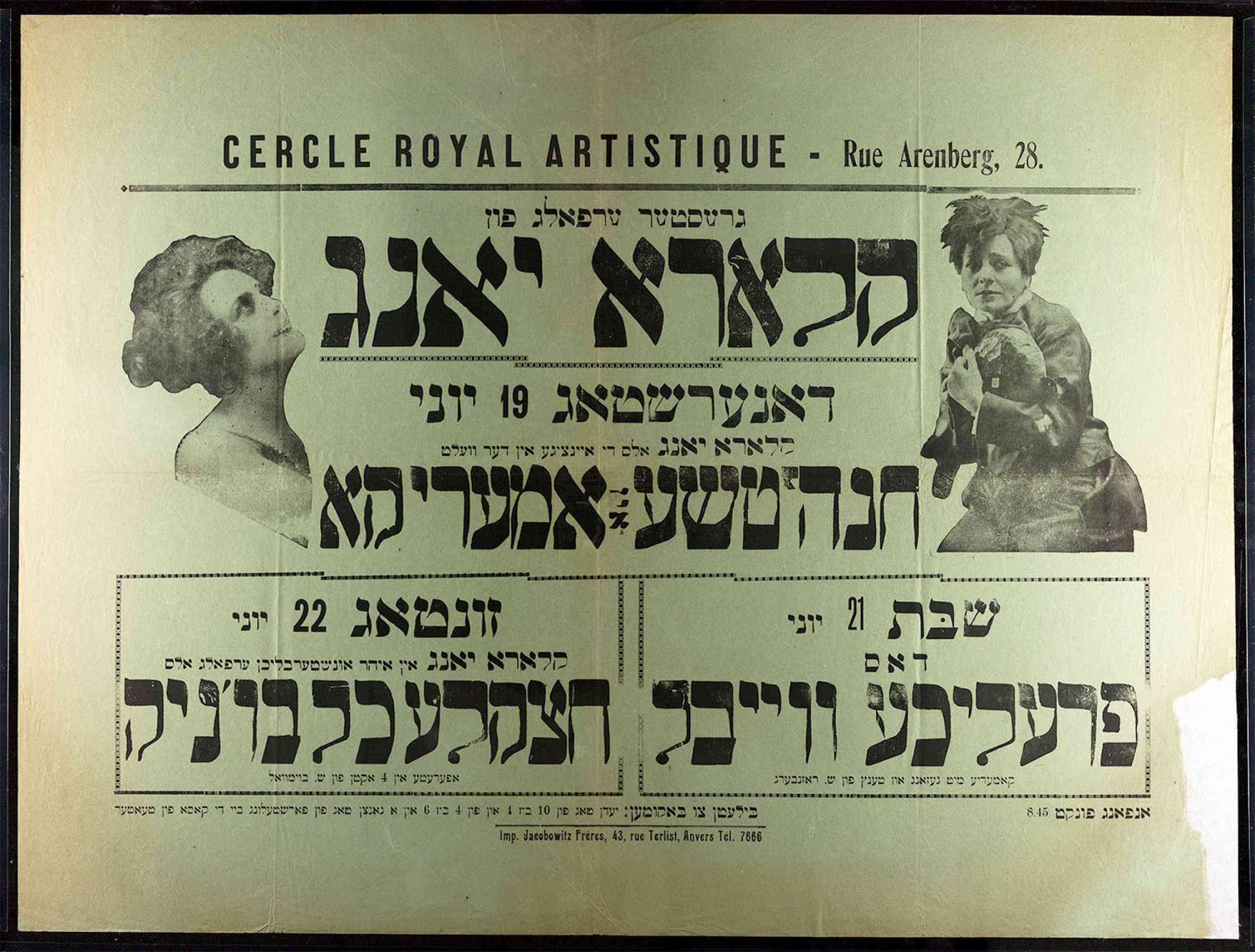
I feel like a detective searching for clues.
Copious amounts of material are processed to meet significant deadlines. The Vilna project, a massive undertaking, is scheduled for completion year-end 2021, and the team has worked assiduously to reach their goal. Although YIVO's headquarters in New York closed from March through July due to the pandemic, forcing staff to work remotely, the team digitized 100,000 pages just between July and December. They returned to the partially re-opened building with great anticipation and a clear longing to handle cherished books, letters, compositions, records, and posters.
Maintaining this level of productivity is challenging, particularly given the fragility of documents and their often mysterious provenance. Judi Yuen, a Digital Projects Specialist, compares the physical books to digital images, ensuring that the images are clear and represent the actual text. “Sometimes, I handle pieces of paper that aren't dated or easily identified, and I need to figure out their context. When was the document created? Who wrote it and for what audience and purpose?” says Judi, who studied Library Science. She gave the example of sequencing pages from a Yiddish newspaper and trying to determine its rightful place in the larger archival framework. “I feel like a detective searching for clues,” she remarks.
Everything we touch has meaning that goes way beyond the physical object itself.
During 2019, YIVO established an in-house Digital Lab to streamline the digitization and ingest of books and artifacts, enabling public and research access to thousands of high quality artifacts online. Phil Karolak, Digital Lab Technician, was inspired to join the YIVO team when he grasped the Vilna Collections’ magnitude, not to mention the positive emotions displayed by board members, supporters, and staff who embrace their heritage so fully. “I’ve worked on hundreds of digital projects during my career, but this project is unique. I’m proud to be part of it,” said Phil. “We are opening doors to history and bringing new information to light. We are preserving much more than pieces of paper and books. Everything we touch has meaning that goes way beyond the physical object itself.”
